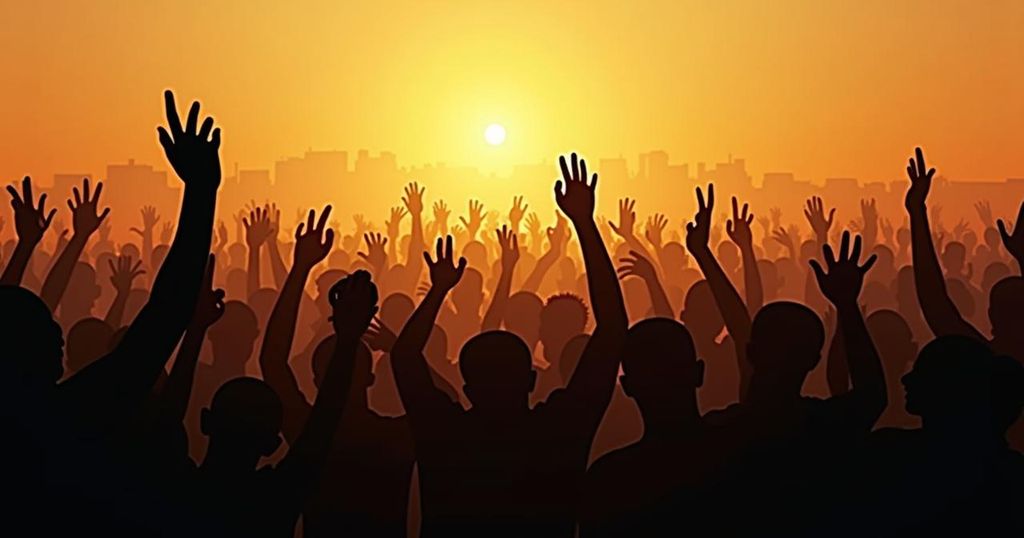Mozambicans are casting votes in a critical general election, with the ruling Frelimo party expected to maintain control. Daniel Chapo, the party’s candidate and a newcomer, seeks to be an agent of change, competing against notable figures including Venâncio Mondlane and Ossufo Momade. The election, significant due to its historical context, comes as the nation grapples with poverty and the aftermath of a civil war and ongoing insurgency, amidst calls for a peaceful electoral process and a brighter future.
In Mozambique, citizens are participating in a pivotal general election that could shape the future political landscape of the nation. The ruling Frelimo party, which has maintained authority since the country gained independence from Portugal in 1975, is anticipated to secure another term. The outgoing President, Filipe Nyusi, who is stepping down following a mandatory two-term limit, was one of the earliest voters as polling commenced in Maputo at 07:00 local time (05:00 GMT). The Frelimo party has nominated Daniel Chapo, a 47-year-old candidate relatively unknown prior to this election, who positions himself as a beacon of change amidst a backdrop of long-standing governance. Chapo faces competition from prominent figures such as independent candidate Venâncio Mondlane, Ossufo Momade, a former rebel and leader of the main opposition party Renamo, and Lutero Simango of the Mozambique Democratic Movement (MDM). Notably, this election marks a significant transition as the Frelimo candidate is not a veteran of the independence war. Chapo, born shortly after independence, is perceived as having a clean slate, distancing himself from the party’s historical corruption controversies. Following his voting at a rainy polling station in the capital, President Nyusi urged voters to exercise patience and refrain from violence, stating, “I would also ask that no group of citizens agitates or threatens others, that everything happens in peace and tranquillity and that we avoid announcing the results ahead of time.” Over 16 million Mozambicans are registered to vote, reflecting a hopeful sentiment among the youth, particularly among those concerned about their nation’s future. Economically, the incoming president will face substantial challenges, particularly the imperative to generate employment opportunities in a nation where over 62% of the population lives in extreme poverty—defined as subsisting on less than $1.90 per day. Additionally, the country is grappling with the repercussions of a 16-year civil conflict that concluded in 1992 and is currently hindered by an Islamist insurgency that has disrupted potential economic benefits from promising gas reserves found in the northern region. Electoral results are anticipated to be announced approximately two weeks following the closure of polls at 18:00 local time.
The political climate in Mozambique has been dominated by the ruling Frelimo party, which has held power since independence in 1975. The current election is significant as it is the first time the ruling party has nominated a candidate, Daniel Chapo, who did not participate in the war for independence. This factor is essential in analyzing the potential for change within the governing structure. Furthermore, the economic landscape of Mozambique poses considerable challenges due to extreme poverty affecting a majority of its population and ongoing issues related to civil security and insurgency in the northern regions.
Mozambicans are engaging in a historic electoral process, selecting leaders who could determine the trajectory of the country post-independence war. With challenges related to poverty and political change at the forefront, the election of a new president represents both hope and a critical opportunity to address long-standing issues. As they vote in significant numbers, the electorate’s desire for change remains palpable amidst calls for peace and stability as the nation moves forward.
Original Source: www.bbc.com






